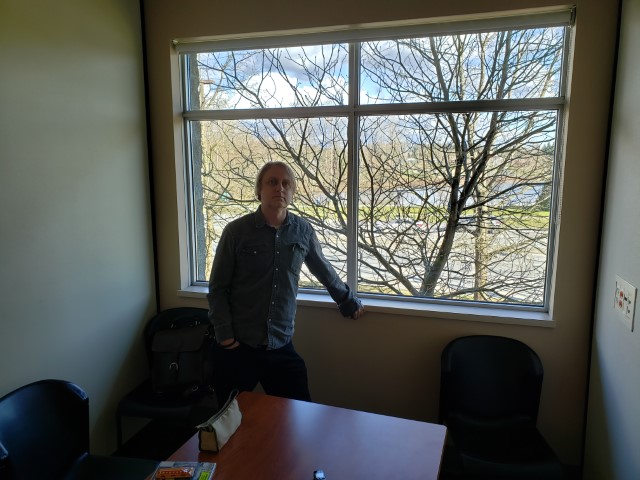
Anthropology faculty member Bill Angelbeck gives his two cents
By Craig Allan, Staff Writer
One of Canada’s biggest issues in this young year so far have been the protests regarding the Wet’suwet’en hereditary chiefs and their defense of the land. There has been a lot of talk and action on the topic, but what is it really about? To offer his ideas and experiences on the matter is Bill Angelbeck.
Angelbeck is a member of the Anthropology faculty at Douglas College and has done many participant-observational studies with First Nations groups. His opinion is that the Wet’suwet’en protests are an extension of a long-lasting showing of colonial injustice that has gone on for over a century. When asked what the difference is between a hereditary chief (who inherit their title) and an elected chief (who are elected by the people), Angelbeck says that the hereditary chiefs are a “traditional form of governance” and that the elected or “band council” are structured by the Indian Act—and therefore he believes they are more associated with the government’s political structure. Because of that, he thinks that the indigenous elected chiefs are there as a way for the government to impose their political system on First Nations groups.
As Angelbeck describes it, he says it’s like saying “you know what, we don’t want to deal with the political complexities here, let’s organize under one chief. You elect a chief, have a council. That chief can respond to us.” He says the reason why the hereditary chiefs have so much of a say on this issue is that the Indian Act set up the elected chief system to represent groups on the reserve lands, where hereditary chiefs represent the territory (where the pipeline is going to run through).
On the issue that this project will bring jobs to the region, Angelbeck believes that the project will provide jobs, but for a very short amount of time—as there will not be many jobs afterwards in the maintenance of the pipeline. He views the hereditary chiefs as bringing more “long term thinking” to the work and prosperity of the region.
For the average person watching these protests, they may view the group as posers who are campaigning for issues other than the Wet’suwet’en one at hand. Angelbeck says that the protests are supporting the Wet’suwet’en, and even if the protests are protesting things like capitalism or environmentalism, he views them as all connected to the same issue of colonization. He views it as a “shared interest.”
He personally thinks that the Wet’suwet’en territorial lands where this pipeline will go through are one of the last areas completely untouched by civilization—whether that’s power lines, roads, pipelines, or other artificially-made structures.
In the grand scheme, Angelbeck feels we need to move away from the systems of our lives that have been formed by colonization. He says, “if you’re not trying to change the colonial structure, you’re going to have problems later.”
Along with this, he feels that reconciliation needs to be tackled with greater intensity by the government. In regard to the government under Justin Trudeau, Angelbeck says that Trudeau has “not lived up to” the promises of reconciliation.
In
the end, Angelbeck views the hereditary chiefs protest of the Coastal Mountain
Gas pipeline as justified. He believes that the Wetsuwet’en chiefs are doing
their duty of representing their role as “steward their lands.” If
decolonization is more that just a buzz word, he believes it will require some
restructuring of the systems that Canada has in place.
In the end, Angelbeck says these kinds of
protests and the overall discontent shown by First Nations groups to the
Canadian system will remain until indigenous groups feel that they have been
properly compensated for their generations of suffering. “This issue will be
present until indigenous people see it as reconciled.”


